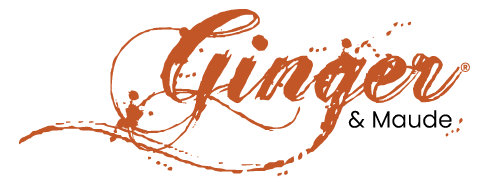
Trans Day of Visibility—a day meant to honor and celebrate trans folks while also raising awareness about the discrimination and violence the community faces—is coming up on 31 March. It is in no way the only day we should be thinking about the aforementioned, however, it is a perfect time (if you haven’t been doing it already) to remind and refresh ourselves about the harmful impact of misgendering and the importance of respecting pronouns.
But before we dive into that, a really quick recap: Pronouns are words we use in substitution of nouns. When it comes to people, they are the words we use to refer to someone instead of their name. (For example, instead of saying, “Deanna went to the park,” we would say, “She went to the park.”) The two we probably hear most frequently are she/her and he/him, though, it is important to note that these are not the only two in existence.
Pronouns are also used to express our gender identity (which is different from our sex, though the two are often confused as being synonymous), and using the incorrect pronoun to refer to someone is known as misgendering them. For many people who are cisgender—they identify with the gender that is typically assumed of the sex they were assigned at birth—being misgendered is rarely encountered, if at all, and so perhaps isn’t given much thought. For folks who are trans and/or nonbinary, misgendering can be a daily (and repeatedly throughout the day) occurrence. This is not only exhausting and invalidating toward the person experiencing it, but is also known to have long-lasting, negative impacts.
Using someone’s correct pronouns is one of the simplest ways we can show them that they are seen and that we support them. Unfortunately, it is also one of the most overlooked or ignored. By making it a habit to ask, acknowledge, and actively use the correct pronouns for each person we meet, we can ensure that we are helping to create a safe, accepting, and validating environment for everyone.
How can I know someone’s pronouns?
The best way is to ask them! The fact is we cannot tell what gender identity another holds, nor what pronouns they use, by looking at them; it is something that is disclosed, not observed. So let’s do away with assuming and embrace inquiring. If it is someone you’ve only just met, start by sharing your own. (“My name is _______, and my pronouns are _______. May I ask yours?”) This not only avoids the other feeling interrogated, it normalizes the asking and sharing of pronouns in the same way we would ask for another key feature of someone’s identity: their name.
In a group setting, we can invite and encourage everyone in the group to share their name and pronouns in turn, though this should never be forced.
If you’re speaking with someone whom you’ve previously known to use a different name or pronouns, ask them privately what the correct way to refer to them would be.
When should I use them?
Always! Once someone has shared their pronouns with you, honor that. Take extra care to refer to them with those pronouns even when they are not present.
What if I mistakenly misgender someone?
Apologize, correct yourself, and do better next time. Even with the best of intentions, it is possible we will all mess up at some point, especially if we are using pronouns that differ from what we have previously used for the same person. If you do mistakenly refer to someone incorrectly, avoid making the situation about yourself—you are not the one who was harmed by your mistake—or turning it into a big deal. Rather, show that you recognize your error by briefly saying something such as, “I’m sorry, I meant [insert correct pronoun here],” and move on. Then, work to make sure it doesn’t happen again by practicing using the correct pronouns and speaking mindfully.
If you misgender someone and another person corrects you, say thank you, make the correction, and keep practicing to do better.
Should I correct misgendering if I hear it happen?
Yes! If you hear someone misgendering another person, quickly and kindly let them know. “Oh, so-and-so actually goes by ______ pronouns.” Doing so relieves some of the burden on trans and nonbinary folks of having to continually correct others themselves, helps everyone to practice staying mindful, and also shows and normalizes speaking up for others, even if they are not in the room.
*Please note, while all of this is generally true, there are some situations or groups in which a person may not feel safe or comfortable sharing their correct pronouns. If you have been made aware of such circumstances, it is crucial to follow the instructions of the individual and remain mindful to ensure their continued safety and well-being.
Some of this might feel challenging or awkward at first—stating your pronouns and asking others for theirs is quite different than the assuming most of us grew up with, for instance—and mistakes may happen. Keep practicing. It will get easier, and the discomfort we may feel in adjusting our vocabulary is small in comparison to the hurt we can cause by assuming or using the incorrect pronouns to describe another. When we take the time to ask, acknowledge, and hold ourselves and others accountable, we are supporting, validating, and respecting our trans and nonbinary friends. And if you ask us, making our corner of the world more inclusive and safe for everyone will always be worth it.
P.S. If you’d like more information, this article is a great jumping-off point with helpful tips for practicing. This website and this one also have some great information, and here is a game you can play to help you practice and get comfortable using different pronouns, including some of the lesser-known ones.
